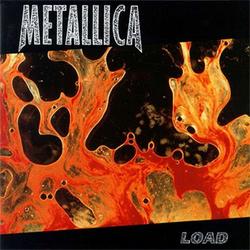...And Justice For All - Metallica
$ 5.99 – $ 8.99
The most immediately noticeable aspect of ...And Justice for All isn't Metallica's still-growing compositional sophistication or the apocalyptic lyrical portrait of a society in decay.
It's the weird, bone-dry production.
The guitars buzz thinly, the drums click more than pound, and Jason Newsted's bass is nearly inaudible.
It's a shame that the cold, flat sound obscures some of the sonic details, because ...And Justice for All is Metallica's most complex, ambitious work; every song is an expanded suite, with only two of the nine tracks clocking in at under six minutes.
It takes a while to sink in, but given time, ...And Justice for All reveals some of Metallica's best material.
It also reveals the band's determination to pull out all the compositional stops, throwing in extra sections, odd-numbered time signatures, and dense webs of guitar arpeggios and harmonized leads.
At times, it seems like they're doing it simply because they can; parts of the album lack direction and probably should have been trimmed for momentum's sake.
Pacing-wise, the album again loosely follows the blueprint of Ride the Lightning, though not as closely as Master of Puppets.
This time around, the fourth song -- once again a ballad with a thrashy chorus and outro -- gave the band one of the unlikeliest Top 40 singles in history; "One" was an instant metal classic, based on Dalton Trumbo's antiwar novel Johnny Got His Gun and climaxing with a pulverizing machine-gun imitation.
As a whole, opinions on ...And Justice for All remain somewhat divided: some think it's a slightly flawed masterpiece and the pinnacle of Metallica's progressive years; others see it as bloated and overambitious.
Either interpretation can be readily supported, but the band had clearly taken this direction as far as it could.
The difficulty of reproducing these songs in concert eventually convinced Metallica that it was time for an overhaul.
| Title/Composers | Performer | Listen | Time | Size | Size | |
|---|---|---|---|---|---|---|
| 1 | BlackenedKirk Hammett, James Hetfield, Jason Newsted, Lars Ulrich | Metallica | Play | 06:42 | 15 MB | 44 MB |
| 2 | ...And Justice for AllKirk Hammett, James Hetfield, Lars Ulrich | Metallica | Play | 09:45 | 22 MB | 66 MB |
| 3 | Eye of the BeholderKirk Hammett, James Hetfield, Lars Ulrich | Metallica | Play | 06:26 | 14 MB | 43 MB |
| 4 | OneJames Hetfield, Lars Ulrich | Metallica | Play | 07:25 | 17 MB | 48 MB |
| 5 | The Shortest StrawJames Hetfield, Lars Ulrich | Metallica | Play | 06:35 | 15 MB | 45 MB |
| 6 | Harvester of SorrowJames Hetfield, Lars Ulrich | Metallica | Play | 05:45 | 13 MB | 37 MB |
| 7 | The Frayed Ends of SanityKirk Hammett, James Hetfield, Lars Ulrich | Metallica | Play | 07:43 | 17 MB | 53 MB |
| 8 | To Live Is to DieCliff Burton, James Hetfield, Lars Ulrich | Metallica | Play | 09:48 | 22 MB | 61 MB |
| 9 | Dyers EveKirk Hammett, James Hetfield, Lars Ulrich | Metallica | Play | 05:16 | 12 MB | 37 MB |
| 65 mins | 149 MB | |||||
| 65 mins | 437 MB | |||||
| Artist | Job | |
|---|---|---|
| 1 | Michael Barbiero | Mixing |
| 2 | Cliff Burton | Composer |
| 3 | Mike Clink | Engineer |
| 4 | George Cowan | Mixing |
| 5 | Ross Halfin | Photography |
| 6 | Kirk Hammett | Composer, Guitar |
| 7 | James Hetfield | Composer, Guitar, Vocals |
| 8 | Mike Hughes | Engineer |
| 9 | George Marino | Remastering |
| 10 | Metallica | Primary Artist, Producer |
| 11 | Jason Newsted | Bass, Composer |
| 12 | Pushead | Illustrations |
| 13 | Flemming Rasmussen | Engineer, Producer |
| 14 | Reiner Design Consultants | Artwork, Design |
| 15 | Steve Thompson | Mixing |
| 16 | Lars Ulrich | Composer, Drums |
| 17 | Toby Wright | Engineer |
| Quality | Format | Encoding | Description |
|---|---|---|---|
| Standard | MP3 | 320kps 44.1kHz | MP3 is an audio coding format which uses a form of lossy data compression. The highest bitrate of this format is 320kbps (kbit/s). MP3 Digital audio takes less amount of space (up to 90% reduction in size) and the quality is not as good as the original one. |
| CD Quality | FLAC | 16bit 44.1kHz | FLAC is an audio coding format which uses lossless compression. Digital audio in FLAC format has a smaller size and retains the same quality of the original Compact Disc (CD). |







